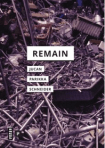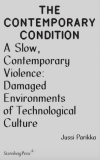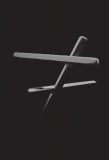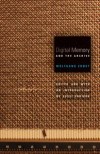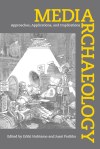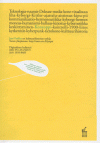The lab as a symptom
I am giving a talk on Laboratory Fever in Amsterdam later in May and I am currently drafting some notes for that. This talk is part of the larger research and book project with my colleagues Lori Emerson and Darren Wershler, and most of our research process is documented on the What is a Media Lab-website. Below however a short excerpt from the forthcoming Amsterdam talk, and relating to a passage about (culture/humanities) labs as places of making, and the lab as a symptom.
___
In her historical contextualisation of the laboratory (“The Laboratory Challenge”), Ursula Klein puts it in rather clear terms: the laboratory was not merely a place of pure science and before the institutionalisation of the site since the 19th century as part of the scientific set up, it had many artisanal connotations as well. The lab was anyway part and parcel of a set-up of making and things, where knowledge was produced in material settings. Indeed, her interest is articulated relating to this “laboratory tradition that meshed studies of nature with technological innovation.” Now, I wonder, how much could we gain and how far could we venture with the poached idea if we did a sort of a minor tweak and see how it sounds when considering the rhetorical promise as well as conditions how we think of labs in the humanities interested in culture and making?
“The laboratory tradition that meshes studies of culture with technological innovation”. A simple and elegant hack, and an update of the scientific lab to a more humanities one? Acknowledging both the relation to “critical making” and also the nexus of culture and technology? Would this solve some of our problems and establish a seeming relation to the scientific labs as labor and elaboration of nature?
But too easy quips aside, there is something in the ways in which the lab as a site of technological making and artefactuality, in some ways, can be seen relating to the arguments by historians of science. Indeed, have we arrived at a situation where we return to the pre-scientific contexts of experimentation and wonder, where also romantic poetry is pitched as such a mode of experimentation, as Novalis once had it, and cultural realities can also found their sites of tests and experiments? Is the lab the neo-romantic but also the pre-scientific lab – a place of making and apparatuses, a place happy to borrow from the scientific aura of the science lab but not merely as an imitation of that model, but a sort of a institutional move that fits in with the issues of basic funding for departments too? Some might critique it as exactly a nostalgic move: at a time when most technocultural processes seem to be escaping the horizon of phenomenological perception and the tool-making human’s hand, we establish sites of such nostalgic proximity to individual technologies that are merely at most interfaces to the massive planetary level technological infrastructures. And yet, establishing concrete sites might be one way of interfacing not only with technologies but educational possibilities of intervention with that technological reality.
Because of the magnitude of questions “the lab” triggers, the number of separate and distinct labs there exists, and that every lab could produce their own particular answer, I would suggest that it is more fruitful to consider the lab not so much as a solution but as a symptom itself; just like Thomas Elsaesser (2016) recently asked about the discipline of media archaeology the question: instead of what is, we should ask why now? And we can extend the same logic of questioning to labs: not just what is a lab but why now? What is it about the lab not merely as an internal place of new methods or new forms of creative or academic activity but as a fold between such techniques and external political and economic conditions of current institutions that makes it a symptom? What are the sort things that temporalise this spatial setting as a question of the now – a question that defines it as a contemporary setting for particular experiments in not only academia or creative industries, but in “political anthropology of new institutional forms” to use Brett Neilson and Ned Rossiter’s ideas.



